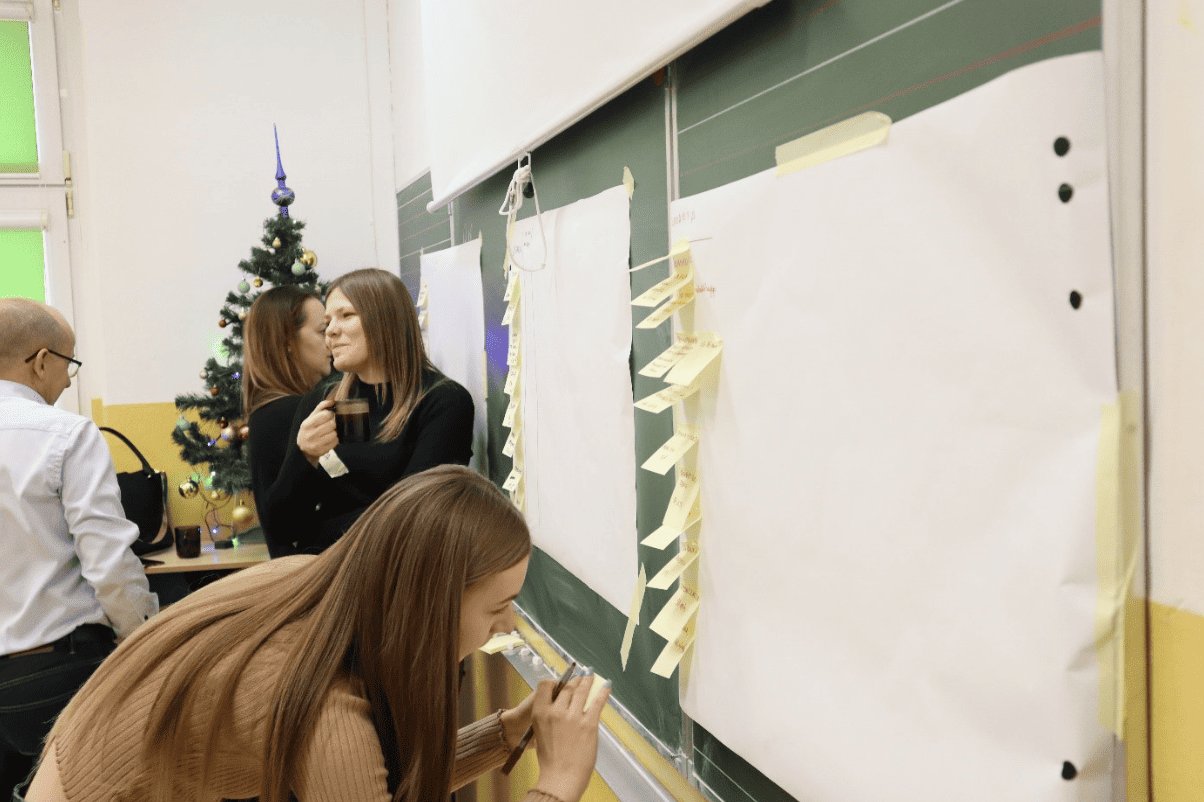
Fagmateriell Parent as a Manager

By: Dr Malgorzata Skweres-Kuchta, dr Joanna Rzempala
Platinum Scouts are children with disabilities. Disability in the family is a huge mental and physical challenge, and it is a tough challenge when it involves a child. After taming the initial shock, parents must stand firmly on their feet to face a new, complicated reality every day. Under the weight of responsibilities, problems and constant fear, they successively disengage from social life, thinking least of themselves and their needs. However, it is their potential in this situation that is crucial. No one has prepared them for this unannounced role.
The «Parent as a Manager» project is supposed to somewhat fill this gap, focusing on building the parent’s potential. It is to strengthen him in the emotional, functional and social spheres so that it will be easier for him to tame numerous tasks and constructively overcome difficulties, and at the same time, to feel good about himself. The project results from cooperation between the NGO sphere, which understands the needs of those seeking support, and the academic sphere, which knows that, if adopted, it could be a practical tool for the project’s beneficiaries.
The project was implemented between September 2022 and March 2023 in Poland. It covered the scope of several parents of children with disabilities and is understood as a pilot activity to verify the need for such activities in the community of both children with disabilities and their caregivers.
To strengthen parents of children with disabilities in the sphere of:
˗ emotional through conscious management of emotions,
˗ functional through effective management of family responsibilities
˗ social through conscious communication, openness to relationships and involvement in social activities, through a series of workshops and discussions with beneficiaries.
The project goal was subordinated to the product goals pursued in the individual workshops (and the complementary podcasts). These goals and the range of skills to be achieved were described in individual scenarios following the intervention logic.
The benefits the project is expected to bring in the long term:
˗ self-confidence and self-appreciation,
˗ reset, relax and gain strength for family activities,
˗ knowing how to operate more efficiently and what tools to use to do so,
˗ a solution-seeking attitude,
˗ clear communication with others and oneself,
˗ openness to relationships with other people,
˗ sharing one’s experiences and listening to others’ hints,
˗ working with NGOs as an exciting challenge to engage in.
The innovation was tested with a group of a dozen parents. Its positive impact could be seen immediately after the workshop. In the long term, we observed in some parents courageous decisions that allowed them to change their current mode of functioning.
The evaluation shows that some parents have taken the next step in their university education, recognising that development is essential and organising their own and their family’s time so that they have time for their own story. Some stated that they have made new decisions and changes in their private life. Most declared that they had implemented the tools in question, i.e. the Eisenhower Matrix to prioritise tasks or placed a Kanban Board in a central place at home so that the family could communicate effectively concerning household tasks. Participants confirmed that it was helpful for them to understand and recognise the types of people in the household or other people according to models such as Marston’s or Discovery Insight. Understanding that different people, depending on their personality and orientation towards tasks or people, need further communication and motivation is very useful.
Significantly, some of those who had implemented the proposed solutions in their home life reported needing to maintain them permanently in the long term. Only some developed habits and used the tools to suit their own needs. This may mean that this much support should be repeated to maintain the effect before it becomes a habit for the family.
Our team would like to continue and develop this initiative, considering lessons learned, in Poland and abroad. If you are interested in social innovations that would like to make life easier for those in need by developing their management skills…. we look forward to hearing from you.
The social innovation «Parent Manager – Platinum Scouts parent empowerment program» was developed by the Platinum Team Foundation within the framework of the project «Innovations for Human Measure 2. Support in the development of micro-innovations in the area of social inclusion» implemented under the Operational Program Knowledge Education Development 2014-2020, co-financed by the European Social Fund.
The program was created by a team of parents, researchers, practitioners and social scientists, and the results of this work can be found here
The program is available under a CC-BY 4.0 Attribution 4.0 International license.
Besøksadresse: Wergelandsveien 1-3, 0167 OSLO
Telefon: 22 20 03 90 / 971 21 800
E-post: post@prosjektledelse.org
Organisasjonsnummer: 897616742
Bankkonto: 1506.21.83397
VIPPS: 13791
Denne siden benytter cookies forbedre brukeropplevelse og sikkerhet. Les personvernerklæringen
Fyll inn kontaktskjema, så vil vi kontakte deg. Du kan eventuelt kontakte oss på mail: post@prosjektledelse.org